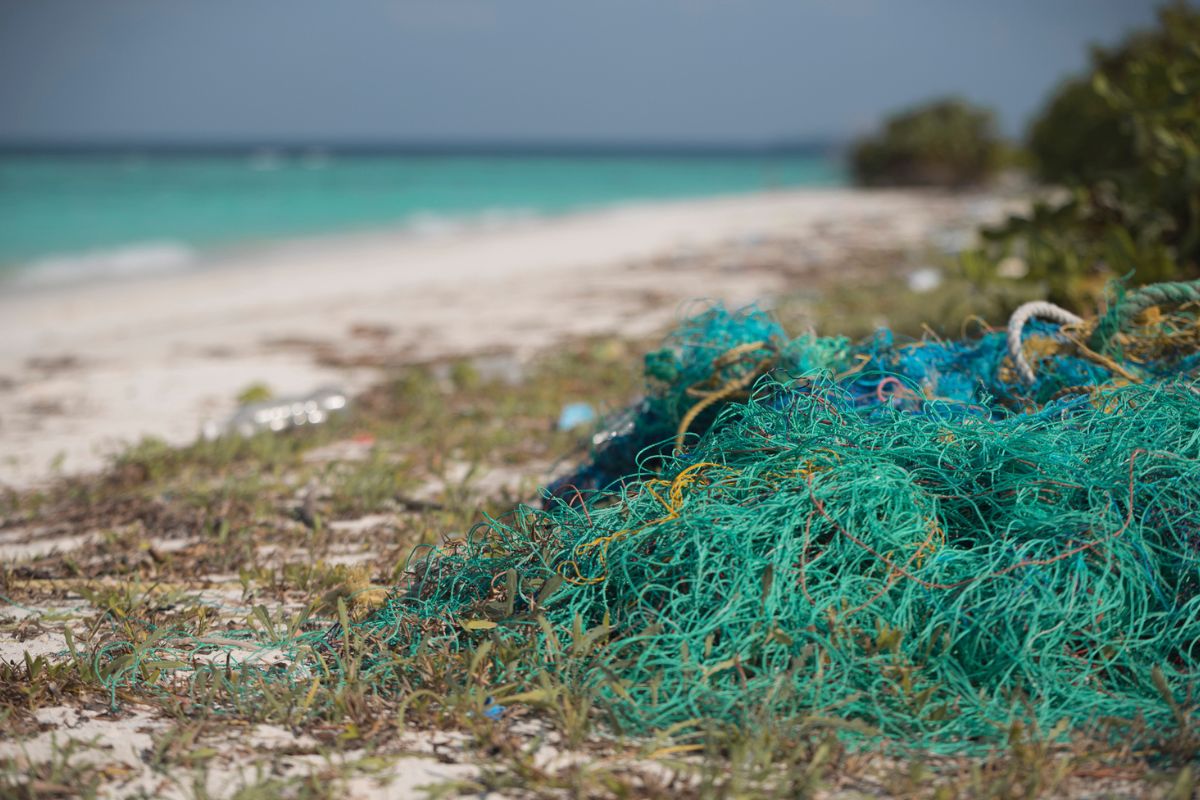Nylon-6 plastic pollutes the environment for thousands of years – researchers develop catalyst to break it down without toxic residues and even recover it.
Plastic pollution is one of the biggest global problems. One of the main culprits is the plastic Nylon-6, a common component of clothing, carpets, seat belts, and fishing nets. This extremely durable material is not biodegradable and remains in the environment for thousands of years. According to the environmental organization WWF, twelve million tons of plastic alone end up in the oceans yearly, including up to one million tons of fishing gear. Fishing nets made from the plastic Nylon-6 make up at least 46 percent of the Great Pacific Garbage Patch, a vast floating mountain of garbage. Images of birds and marine animals caught in them have become sadly famous.
Waste containing nylon-6 is landfilled or incinerated, but the latter produces pollutants such as nitrogen oxides or releases greenhouse gases such as carbon dioxide. Researchers at Northwestern University in the US state of Illinois have developed a catalyst to decompose the plastic within a few minutes and without toxic residues. According to the scientists, unlike previous catalysts for this purpose, it does not require any environmentally harmful solvents and works at comparatively low temperatures of 220 degrees Celsius. The underlying materials are rare earth elements such as yttrium, selected for certain chemical and physical properties, but also for their cost-effectiveness compared to common catalyst raw materials such as the precious metal ruthenium.
The researchers tested their method on cut nylon products such as fishing nets, yarns, carpets, and T-shirts. They were able to demonstrate that 99 percent of the original molecules of the plastic could be recovered. Under laboratory conditions, the catalyst could selectively remove nylon from mixed plastics such as medical gloves, as a publication in the journal Chem shows.
In addition to the environmental clean-up aspect, it could represent the first step towards upcycling; recycled nylon is even more valuable than its source material and is used by many high-end fashion brands, explains study author Tobin Marks. His research team has now applied for a patent for the rare-earth-based catalyst and says it has attracted interest from potential industrial partners already.
Photo: iStock/Aryfahmed


